
Front row, fourth from right: Prof John Paul with organising committee and participants
The Centre for Research on Non-Communicable Diseases (CRNCD) organised a seminar titled “Urinary Incontinence: Is it common and normal?” at Sungai Long Campus on 28 September 2018. The seminar aimed to promote the awareness of urinary incontinence (UI) by sharing the latest updates of its current management with academicians, health care providers, students and the public.
Prof Cheong welcoming the speakers and participants to the seminar
Keynote speaker Faculty of Medicine and Health Sciences (FMHS) Dean Emeritus Prof Dr Cheong Soon Keng welcomed the participants and speakers to UTAR Campus and said, “It is my pleasure, on behalf of CRNCD, to welcome all of you to this seminar on urinary incontinence, which is a very timely topic because it is very common, especially among the senior citizens. Now that the number of elderlies among Malaysian has risen, this problem set to pose a challenge to them. So, this seminar will give us the opportunity to raise awareness of this problem. It will also encourage team building across different fields because we need a team to work a solution to this problem. Hence, I would like to thank all the speakers for allocating your time to be here with us and participants for participating in this seminar. I would also like to thank the organisers for making this seminar-cum-workshop possible.”
The seminar saw three sessions, encompassing multiple invited talks, and two workshops. The first session was chaired by FMHS lecturer Dr Saravanan Jagadeesan. It saw Dr Pavan Kumar from Management and Science University delivering his lecture on “Chemicals causing Incontinence”. Dr Pavan explained how regular chemicals could compromise continence, “Alpha-adrenergic agonists such as clonidine and methyldopa mimic the action of norepinephrine at receptors. In this way, they may contract the bladder neck, causing urinary retention and thus overflow UI. Also, a number of antipsychotics have been associated with UI, including chlorpromazine, fluphenazine (including enanthate and decanoate), haloperidol, and pimozide. Most antidepressants are inhibitors of norepinephrine and serotonin uptake.”
The second session was chaired by FMHS lecturer Dr Fong Lai Yen. It featured two speakers, namely Assoc Prof Dr Chew Heng Hai and Assoc Prof Dr Yu Chye Wah from AIMST University. They delivered their lectures titled “How does urinary incontinence relates to the defecation process?” and “Gold Standard Treatment for Urinary Incontinence” respectively. Dr Chew in his talk provided a holistic understanding of the human’s pelvic floor. He said, “There are various factors that contribute to UI such as pregnancy, ageing, menopause and constipation. However, the recent study shows that defecation could also lead to UI. During defecation, the pelvic floor descends about three centimetres. At the end of defecation, a rectocele and uterovaginal prolapse are detected.” He then recommended manual or mechanical bowel aided defecation as part of postnatal care.
Dr Yu began his talk by explaining the definition of Gold Standard treatment. He said, “A Gold Standard treatment is a treatment which is proven to give the best therapeutic outcome or simply said, an ideal treatment. Incontinence is expensive both to individuals in the form of bladder control products and to the health care system and nursing home industry.” According to Dr Yu, an average woman spends about $900 each year to deal with the effects of bladder leakage. He also explained the treatment options available for UI patients, namely conservative treatment, medication and reconstructive surgery.
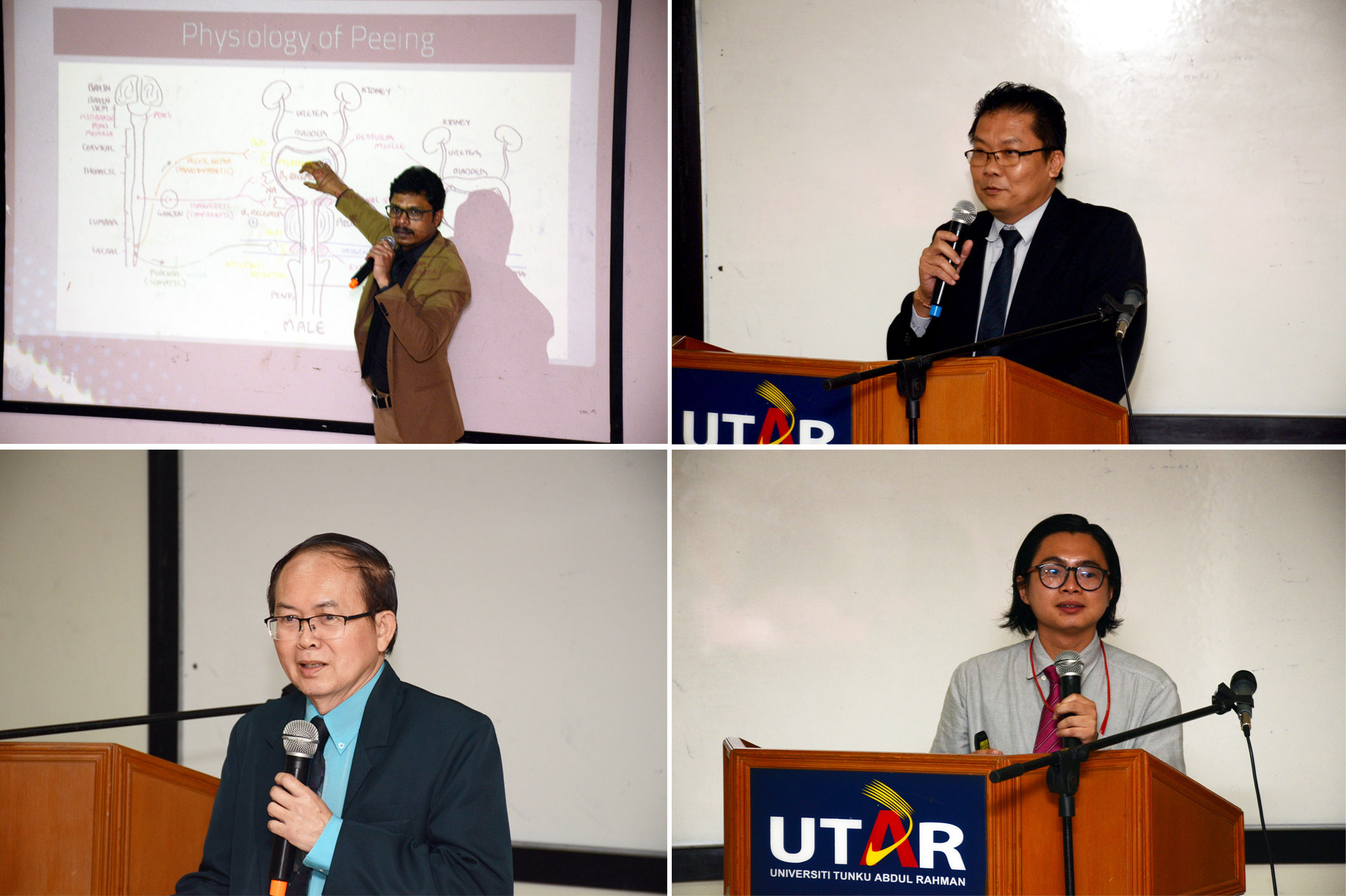
Clockwise, from top left: Dr Pavan, Dr Chew, Dr Yu and Gan
The third session was chaired by CRNCD Chairperson Prof Dr John Paul Evangel Judson and it saw FMHS lecturer Gan Quan Fu presenting his lecture on “Physiotherapy Perspective in managing urinary incontinence”. According to Gan, UI male and female, although the females are more susceptible to it. There are four types of UI; stress incontinence occurs due to the poor closure of the bladder; functional incontinence occurs due to health problems or medications that make it difficult for the patients to reach the toilet; urge incontinence due to overactive bladder; and overflow incontinence due to poor bladder contraction or blockage of the urethra. “Depending on the disability, a physiotherapist may plan on treatment to overcome the disability,” he said.
Two workshops were also organised for the participants to gain more insights into UI. The first workshop was titled “Nursing people with urinary incontinence”. It saw FMHS lecturer Choo Peak Yean from the Department of Nursing sharing about the proper way to nurse and handle patients with UI. The second workshop was titled “Managing people with urinary incontinence”. The workshop was facilitated by FMHS lecturer Swapneela Jacob. She shared a few exercise routines that would strengthen the pelvic floor muscles in order to avoid and reduce the effects of UI.
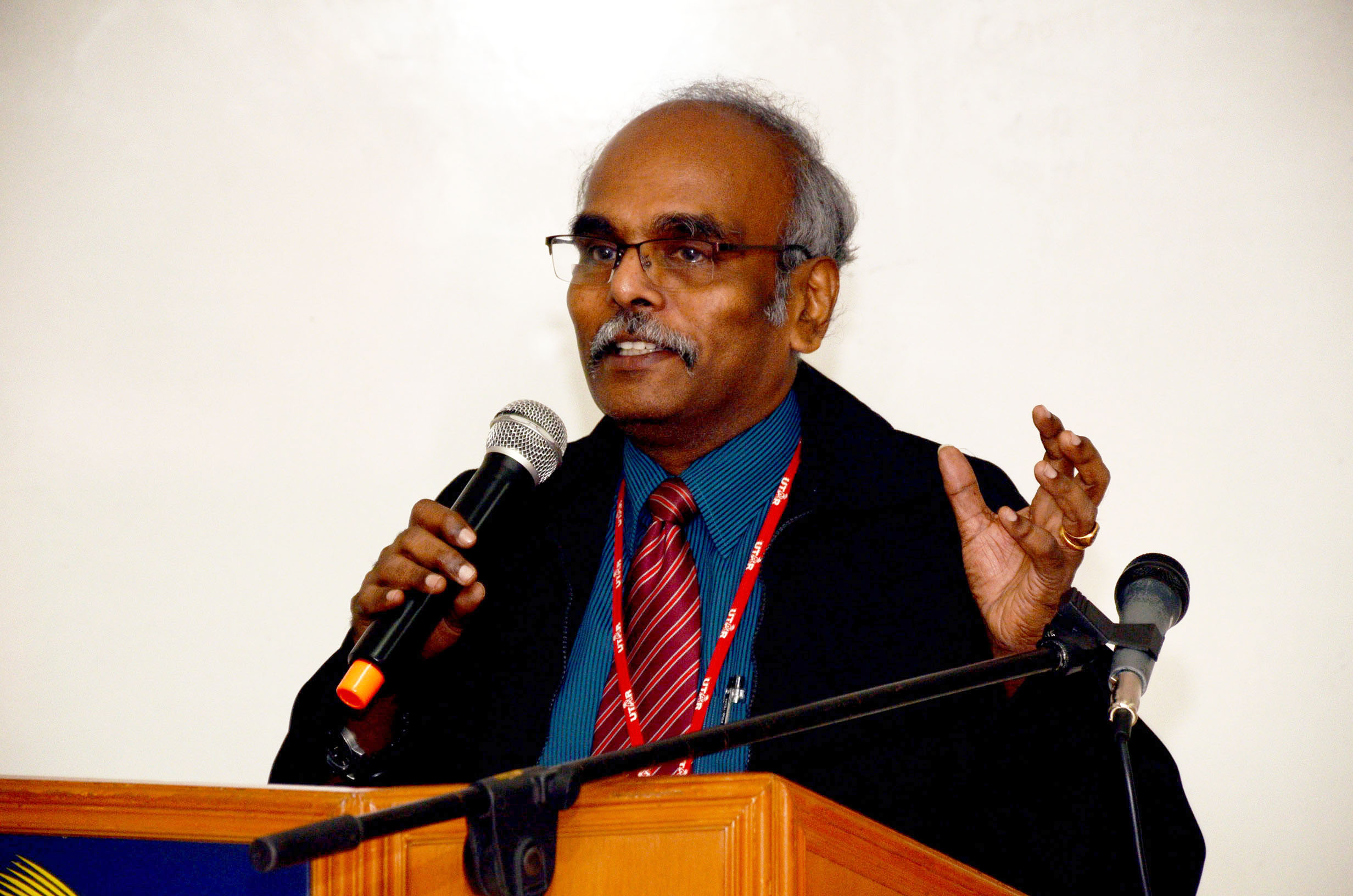
Prof John Paul delivering his closing remarks
Prof John Paul thanked the speakers for sharing valuable insights on UI. He also thanked the participants for attending the seminar and making it more vibrant. He then expressed his desire to collaborate and work on new projects in this area.

Choo (left picture) and Swapneela during the workshops
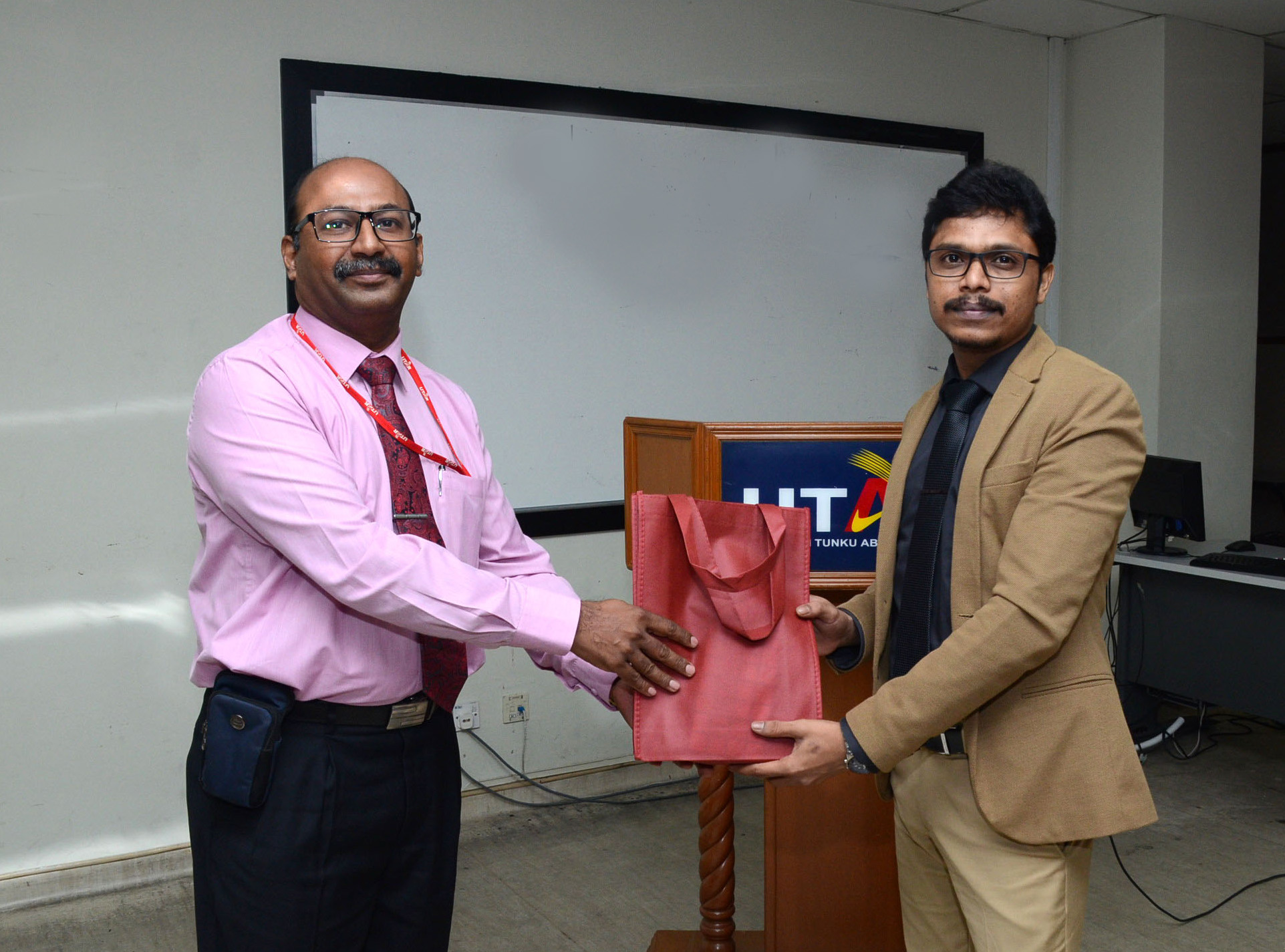
From left: Dr Saravanan presenting the token of appreciation to Dr Pavan
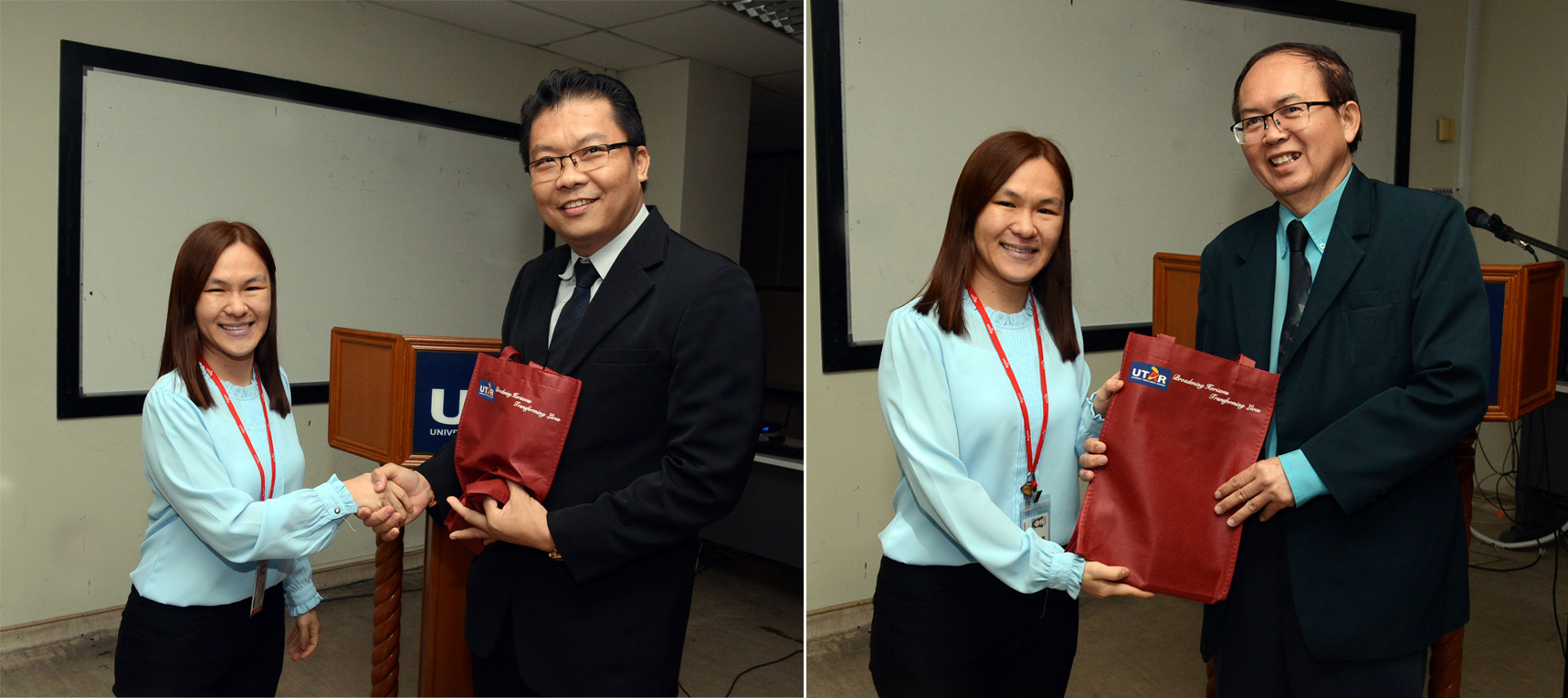
Dr Fong (left) presenting the token of appreciation to Dr Chew and Dr Yu
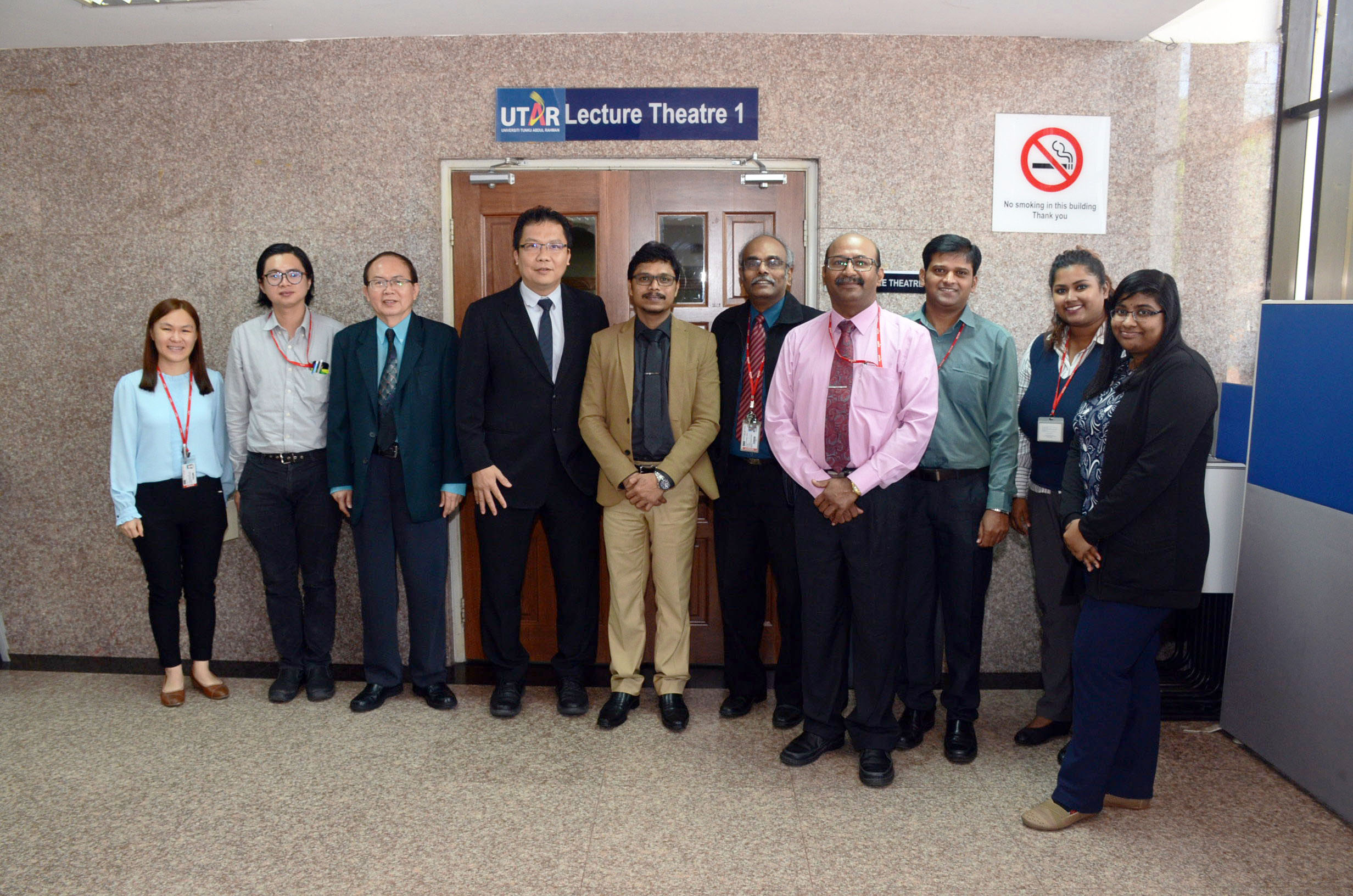
From left: Dr Fong, Gan, Dr Yu, Dr Chew, Dr Pavan, Prof John Paul and Dr Saravanan with organising committee
© 2019 UNIVERSITI TUNKU ABDUL RAHMAN DU012(A).
Wholly owned by UTAR Education Foundation Co. No. 578227-M LEGAL STATEMENT TERM OF USAGE PRIVACY NOTICE